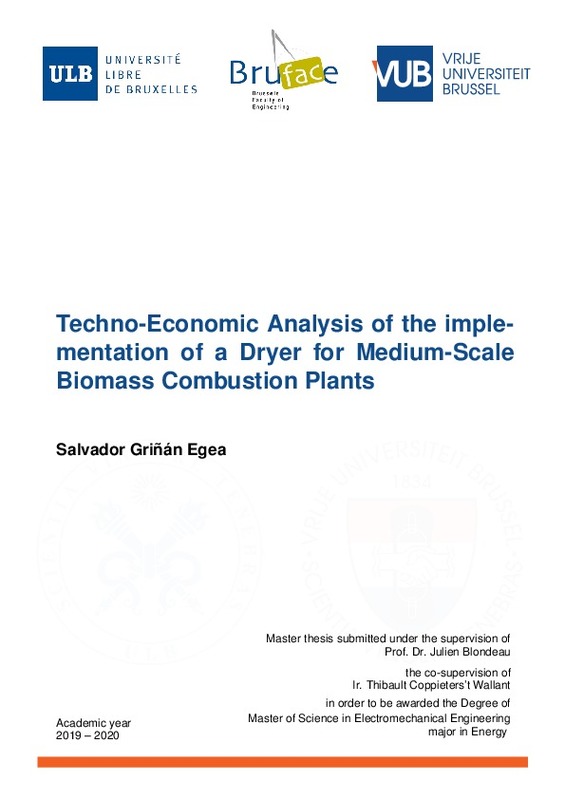JavaScript is disabled for your browser. Some features of this site may not work without it.
Buscar en RiuNet
Listar
Mi cuenta
Estadísticas
Ayuda RiuNet
Admin. UPV
Análisis Técnico-Económico de la implementación de un Secador en una Planta de Combustión de Biomasa de tamaño medio
Mostrar el registro completo del ítem
Griñán Egea, S. (2020). Análisis Técnico-Económico de la implementación de un Secador en una Planta de Combustión de Biomasa de tamaño medio. Universitat Politècnica de València. http://hdl.handle.net/10251/162089
Por favor, use este identificador para citar o enlazar este ítem: http://hdl.handle.net/10251/162089
Ficheros en el ítem
Metadatos del ítem
| Título: | Análisis Técnico-Económico de la implementación de un Secador en una Planta de Combustión de Biomasa de tamaño medio | |||
| Autor: | Griñán Egea, Salvador | |||
| Director(es): | ||||
| Entidad UPV: |
|
|||
| Fecha acto/lectura: |
|
|||
| Resumen: |
[EN] The consumption of biomass as a fuel for heat and power generation is increasing its
contribution to global nal energy consumption. Replacing coal by biomass avoids the
emission of a huge amount of carbon (in the ...[+]
[ES] La situación actual de cambio climático y efecto invernadero está llevando al desarrollo e introducción de las energías renovables en la producción de electricidad y calor. Las fuentes de energía solares, eólicas o ...[+]
|
|||
| Palabras clave: |
|
|||
| Derechos de uso: | Reconocimiento (by) | |||
| Editorial: |
|
|||
| Titulación: |
|
|||
| Tipo: |
|
recommendations
Este ítem aparece en la(s) siguiente(s) colección(ones)
-
ETSII - Trabajos académicos [10484]
Escuela Técnica Superior de Ingenieros Industriales







